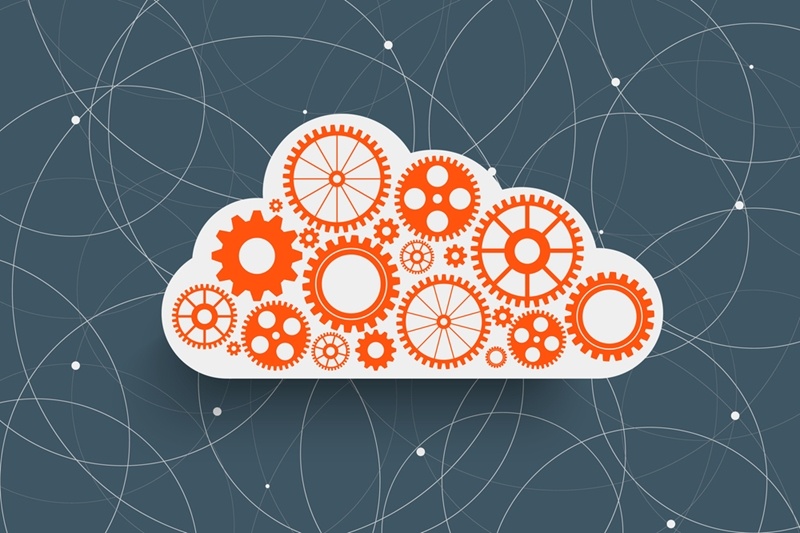Cloud computing began as a consumer technology trend. By taking advantage of the convenience of services like Dropbox, Spotify, Gmail and many others, consumers were able to dramatically reduce their reliance on specific machines, local file storage and traditional desktop applications.
Workflows such as managing all of your emails from your desktop or toting around a huge MP3 collection on an external hard drive haven't completely gone out of fashion with the rise of the cloud. But people now have real alternatives in the form of lightweight but powerful cloud solutions that can perform the same tasks while requiring little more than a reliable Internet connection.
Where are businesses on their cloud journeys?
SMBs around the globe have been following the lead of consumers and weaving cloud services of all kinds, from infrastructure via Amazon Web Services to software-as-a-service tools like Salesforce and Intacct, into their day-to-day activities. In fact, small and medium-sized businesses are adopting cloud software at an even faster clip than their larger counterparts, according to Rackspace.
Accounting firms are a prime example of how much of a makeover tools like cloud budgeting and forecasting software can give to old-fashioned processes. SMBs in particular can save tons of time and money by foregoing the Excel sheets and pricey on-premises tools for cloud alternatives.
The time and convenience difference
Setting up a traditional accounting system can be a long, drawn-out process, requiring infrastructure maintenance (and/or upgrades), complex software licensing and ongoing attention to matters such as ensuring dependable application access for remote users. Plus, even after everything is technically fine and ready to use, there's still the longer-term issue of having to actually use such solutions to handle project accounting. During periods of rapid growth, for instance, not being able to view operational and financial data in real time can drag down profitability and waste tons of time.
Cloud financial software is pure simplicity and efficiency in comparison:
- First, the SaaS license usually takes care of updates and technical maintenance, while the application itself is securely accessible from just about any IP-enabled device. Setup is simplified.
- Second, with security and system availability ensured, it becomes much easier to track information - such as project time or cost per consultant - as it comes in.
- Finally, streamlined IT leads to more resources being freed up for other projects around the business, such as remote office upgrades or new personnel hiring.
"Cloud financial software is pure simplicity."
Capitalizing on data and app integrations
Getting value from data depends on what you choose to measure, as well as what tools you use to understand the chosen metrics within the context of your operations. For example, a professional services organization might seek to measure project profitability by customer and/or by location. Doing so would require pulling information from many sources - e.g., an old spreadsheet, an email, etc.
Manual processes and siloed applications are poor fits for these tasks, since they are neither fast nor scalable. Data entry and report generation can take away valuable time from accounting teams and put them in strictly reactive modes, in which they cannot easily step back and proactively reassess how a project is going.
In contrast, cloud accounting software makes it possible to quickly collect and, more importantly, make sense of specific types of data related to profit margins, accounts receivable and previously unknown billable revenue. It makes these numbers available in real time via intuitive dashboards, while also being able to share them with other applications.
Cloud financial software thus provides opportunities to know what's going on with individual projects and then use this fresh knowledge to take actions such as reconsidering fees for clients or reassigning personnel. Specific scenarios can be easily modeled, while reports can be drilled into for fine-grained details about current and projected financial performance.
Cloud beginners, intermediates and experts
Given how new it is, the cloud hasn't become a fixture of all businesses yet, or even been adopted at all in some cases, despite the many use cases and benefits outlined above. How an organization might actually use the cloud can be understood by classifying it as a beginner, intermediate or expert firm (in regard to its expertise with the cloud). Each "class" can find its own particular uses for cloud financial software, which may be instructive for SMBs considering a shift in the near future:
Beginner
In this category are companies that are beginning to get a sense of what the cloud can do for their particular operations. A lot of time here may be devoted to setting a few broad goals and then seeing if a SaaS solution can help the organization meet them.
For instance, a cloud "beginner" SMB may have started to realize some common QuickBooks disadvantages and decided to shop for something more scalable and robust. It could be planning to roll out a new product as it grows and then track its profitability and get a grip on associated vendor management.
Cloud software would make such metrics available in real time, via an easy-to-see dashboard that is accessible via the Web. It can also supply department-level reports that are easy to customize and organize within a cohesive system - no more scrambling to reconcile different spreadsheets or re-enter a lot of data by hand just to get basic visibility.
Intermediate
An accounting firm at the intermediate stage has likely already made cloud software an important cog in its financial machinery. For example, real-time access to data as well as automation may allow an "intermediate" organization to greatly reduce its labor costs.

Cloud-based software can be an important cog in the financial machinery of "intermediate" businesses.
That was the case with the Faith Promise Church in Knoxville, Tennessee, which shifted its day-to-day bookkeeping processes over to cloud-based software. Even as its operations grew, it was able to trim $85,000 annually from staffing costs. It gained access to more timely data for making superior decisions. Plus, its newfound ability to track and manage activities at multiple sites helped drive a 35 percent uptick in productivity.
Expert
Finally, there are expert firms that have moved on to, or have always had, near or full virtualization of their IT infrastructure. In practice, this means being able to nimbly respond to client requests and tackle projects that might be too taxing for firms still wrangling with paper- and spreadsheet-based processes.
An expert business, having already migrated its core financial processes to the cloud, may look to keep integrating its cloud accounting software with other applications for customer relationship management or supply chain oversight. Setting up a workflow such as seamless hand-offs between Intacct and Salesforce allows for swift handling of invoices as well as the establishment of a clear audit trail. As a result, the expert firm can free up time to devote to other areas of business, such as targeting a specific niche or vertical.
Not everyone will, or needs to, become an expert. The cloud has its own unique role in each organization and can just as much complement existing processes as it can replace them. Evaluating a solution is the first step toward potentially huge savings, fewer hassles with IT and opportunities to make the entire organization more efficient.




